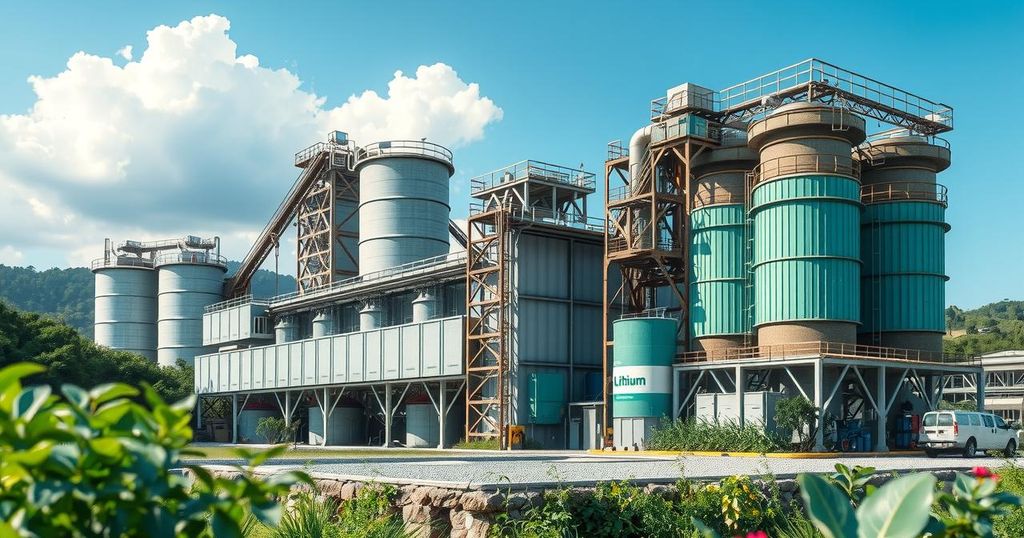Nigeria to Launch Lithium Processing Plants with Chinese Investment

Nigeria plans to launch two lithium processing plants funded mainly by Chinese investors, aiming to create jobs and advance technology in the country. A $600m facility near Kaduna and a $200m refinery near Abuja are on the way, with two more slated for 2025. This move signals a shift from raw mineral exports to domestic processing.
Nigeria is set to open two significant lithium processing plants this year, marking a shift aimed at adding value domestically rather than simply exporting raw minerals. This news comes from a report by Reuters. The country’s Mining Minister, Dele Alake, stated that these plants, funded largely by Chinese investors, are anticipated to boost job creation, technology development, and manufacturing capabilities within Nigeria.
A lithium processing facility costing $600 million is near the Kaduna-Niger border and is expected to open in this quarter. Another $200 million lithium refinery on the outskirts of Abuja is nearing completion. These efforts reflect Nigeria’s aim to make the most of its rich mineral resources to foster economic growth.
Minister Alake has also announced plans for two additional processing plants to be located in Nasarawa state, which border the capital Abuja, aiming for operational status by the third quarter of 2025. This strategy underscores Nigeria’s commitment to transforming its mineral wealth into domestic economic advantages, as highlighted by the minister’s statements.
Chinese firms, specifically Jiuling Lithium Mining Company and Canmax Technologies, reportedly finance over 80% of the funding for these four planned facilities. Meanwhile, local firm Three Crown Mines holds the remaining stake. Chinese partners have yet to comment on these ongoing developments.
“We are now focused on turning our mineral wealth into domestic economic value – jobs, technology and manufacturing,” Alake commented, emphasizing the vision for this initiative.
The push for domestic processing follows a 2022 report from Nigeria’s Geological Survey Agency that revealed significant high-grade lithium deposits scattered across multiple states in Nigeria. This finding has drawn considerable interest from international markets and is seen as a vital part of reforms intended to rejuvenate Nigeria’s underdeveloped mining sector. Currently, mining contributes a meager less than 1% to the national GDP.
To further this aim, Nigeria’s government has implemented measures like banning unprocessed mineral exports, formalizing artisanal mining, and setting up a state mining company that offers investors up to a 75% stake. Last year, government officials also announced that new mining licences would only be awarded to firms that commit to local mineral processing, stepping away from the country’s previous focus on exporting raw materials.
A government representative pointed out that the ultimate goal is to maximize the economic value of Nigeria’s solid mineral resources, reflecting the broader economic aspirations of the nation as a whole.
Nigeria’s planned lithium processing plants represent a significant shift from exporting raw materials to fostering local processing and manufacturing. Backed primarily by Chinese investments, these plants aim to create jobs and enhance technological development. With ongoing reforms and restrictions on unprocessed minerals, the nation hopes to fully leverage its mineral wealth to contribute more effectively to the economy while revitalizing its mining sector.
Original Source: www.mining-technology.com




